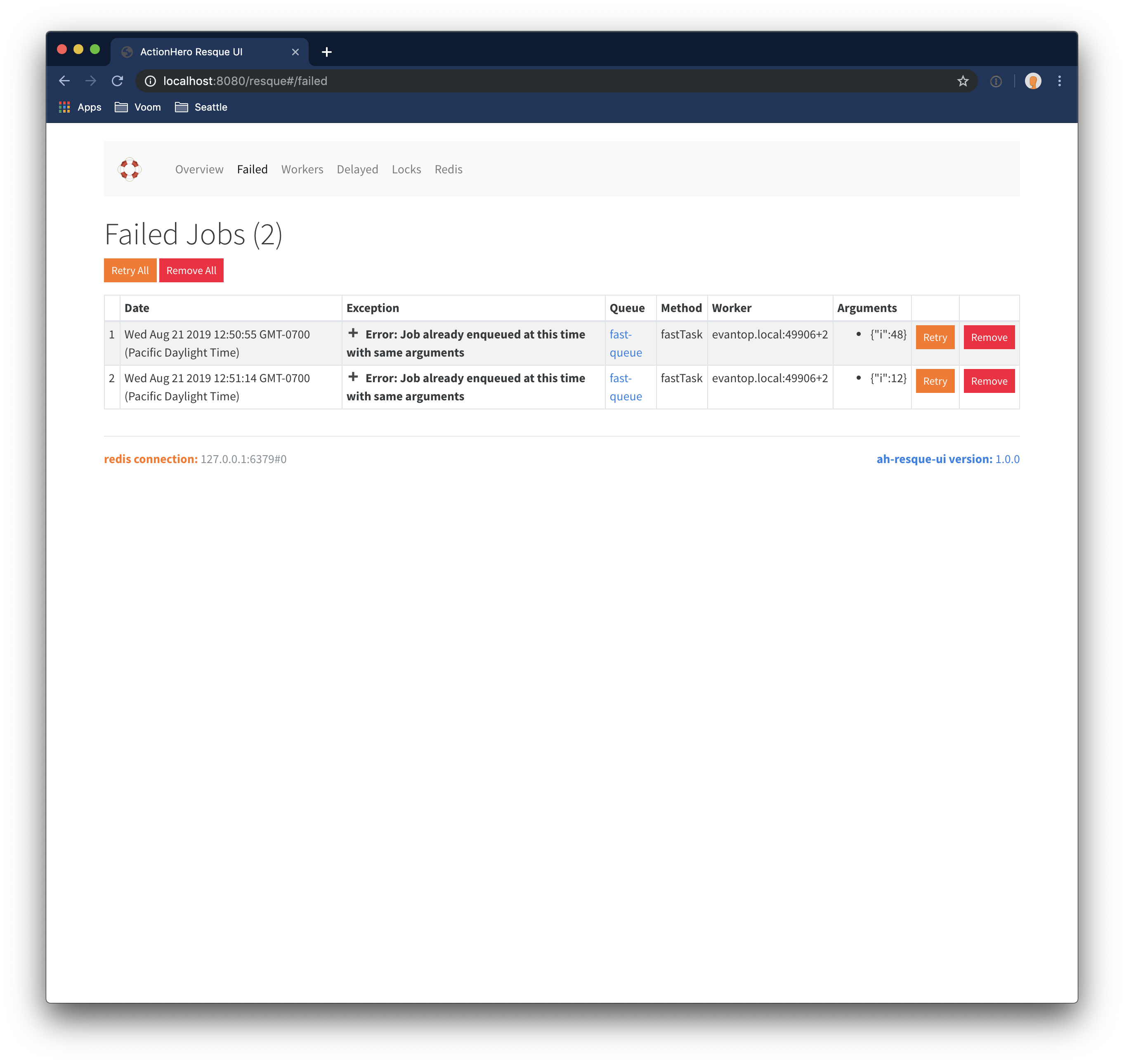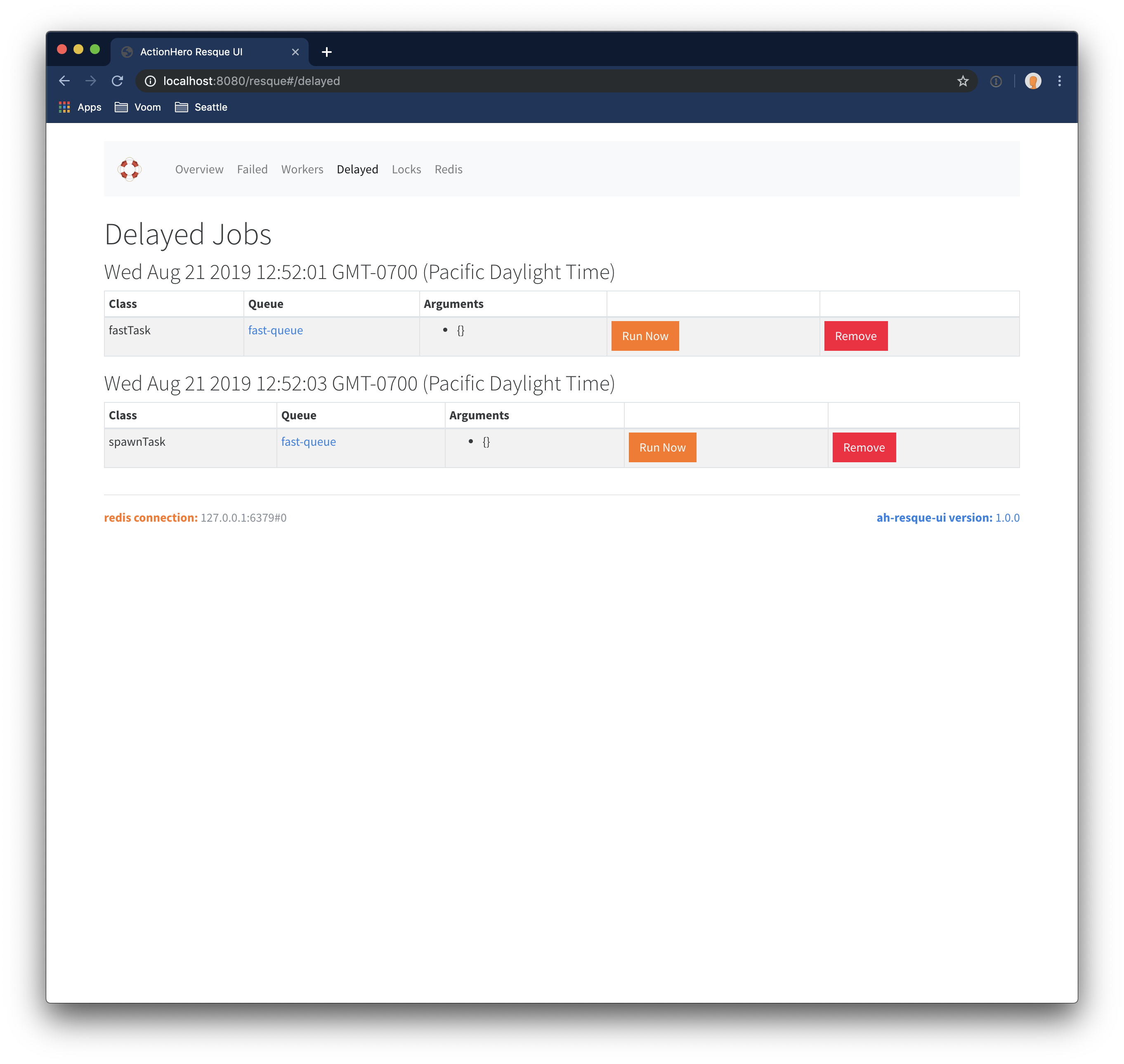A resque administration website for actionhero
npm install --save ah-resque-uinpm run actionhero -- link --name ah-resque-ui
npm install --save ah-resque-ui- insert
ah-resque-uiin your plugins.js to include the application
ActionHero version 12 or higher is required.
This plugin will inject routes into your application. The routes are equivalent to:
get: [
{ path: '/resque/packageDetails', action: 'resque:packageDetails' },
{ path: '/resque/resqueDetails', action: 'resque:resqueDetails' },
{ path: '/resque/queued', action: 'resque:queued' },
{ path: '/resque/loadWorkerQueues', action: 'resque:loadWorkerQueues' },
{ path: '/resque/resqueFailedCount', action: 'resque:resqueFailedCount' },
{ path: '/resque/resqueFailed', action: 'resque:resqueFailed' },
{ path: '/resque/delayedjobs', action: 'resque:delayedjobs' },
],
post: [
{ path: '/resque/removeFailed', action: 'resque:removeFailed' },
{ path: '/resque/retryAndRemoveFailed', action: 'resque:retryAndRemoveFailed' },
{ path: '/resque/removeAllFailed', action: 'resque:removeAllFailed' },
{ path: '/resque/retryAndRemoveAllFailed', action: 'resque:retryAndRemoveAllFailed' },
{ path: '/resque/forceCleanWorker', action: 'resque:forceCleanWorker' },
{ path: '/resque/delQueue', action: 'resque:delQueue' },
{ path: '/resque/delDelayed', action: 'resque:delDelayed' },
{ path: '/resque/runDelayed', action: 'resque:runDelayed' },
]
};This package exposes some potentially dangerous actions which would allow folks to see user data (if you keep such in your task params), and modify your task queues. To protect these actions, you should configure this package to use action middleware which would restrict these actions to only certain clients.
An example middleware would be one which requires a valid user to be logged in:
// from initializers/session
module.exports = {
initialize: function (api, next) {
var redis = api.redis.clients.client;
api.session = {
prefix: 'session:',
ttl: 60 * 60 * 24, // 1 day
load: function(connection, callback){
var key = api.session.prefix + connection.fingerprint;
redis.get(key, function(error, data){
if(error){ return callback(error); }
else if(data){ return callback(null, JSON.parse(data)); }
else{ return callback(null, false); }
});
},
create: function(connection, user, callback){
var key = api.session.prefix + connection.fingerprint;
var sessionData = {
userId: user.id,
status: user.status,
sesionCreatedAt: new Date().getTime()
};
redis.set(key, JSON.stringify(sessionData), function(error, data){
if(error){ return callback(error); }
redis.expire(key, api.session.ttl, function(error){
callback(error, sessionData);
});
});
},
middleware: {
// These actions are restricted to the website (and you need a CSRF token)
'logged-in-session': {
name: 'logged-in-session',
global: false,
priority: 1000,
preProcessor: function(data, callback){
api.session.load(data.connection, function(error, sessionData){
if(error){ return callback(error); }
else if(!sessionData){
return callback(new Error('Please log in to continue'));
}else{
data.session = sessionData;
var key = api.session.prefix + data.connection.fingerprint;
redis.expire(key, api.session.ttl, callback);
}
});
}
}
}
};
api.actions.addMiddleware(api.session.middleware['logged-in-session']);
next();
}
};Now you can apply the logged-in-session middleware to your actions to protect them.
To inform ah-resque-ui to use a middleware determined elsewhere like this, set api.config.ah-resque-ui.middleware = 'logged-in-session' in the provided configuration file.




